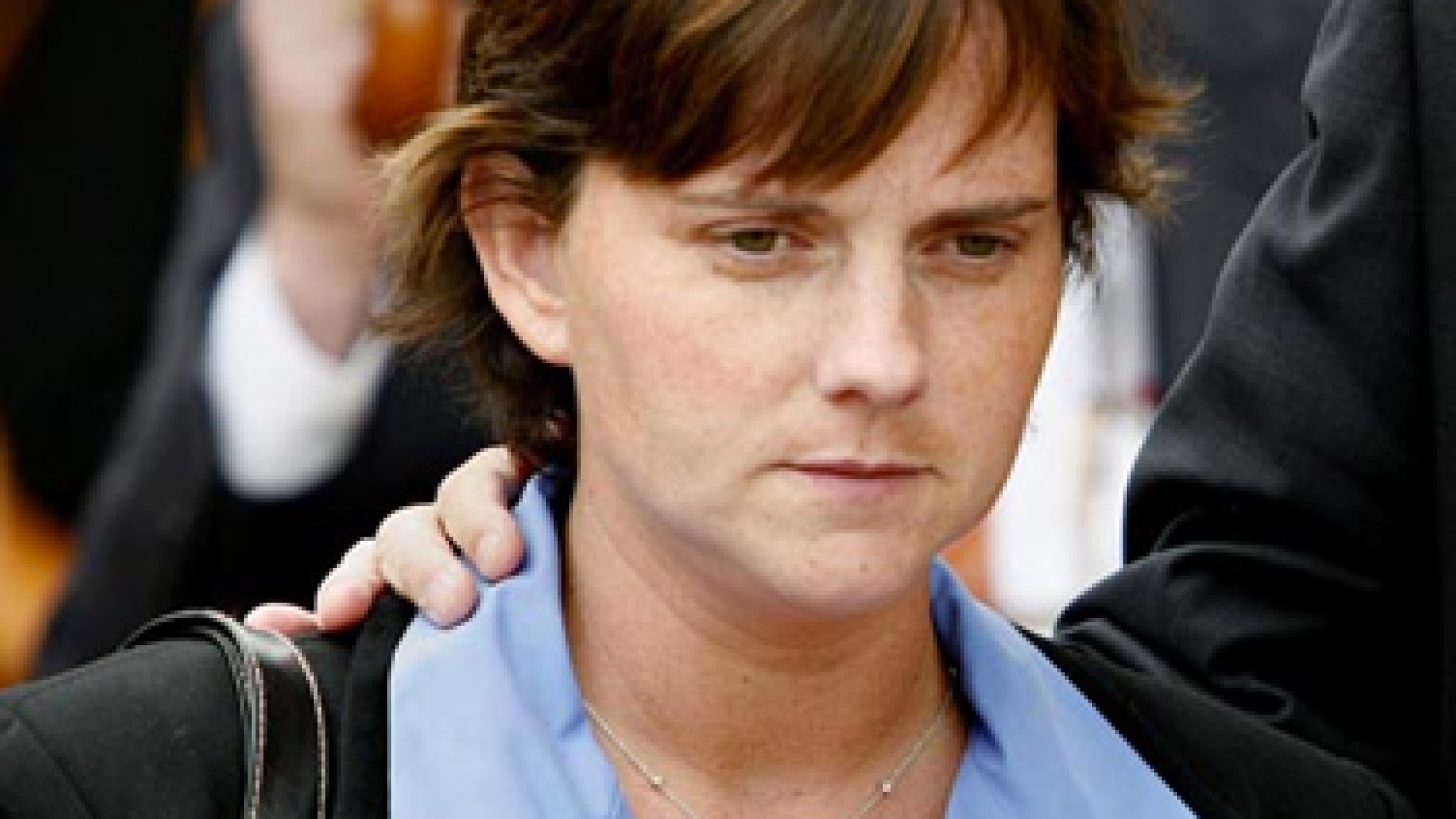MARY WINKLER AND POST-TRAUMATIC STRESS SYNDROME
September 10, 2007
Mary Winkler shot her minister husband, Matthew, in Selmer, Alabama, in the back and killed him after 10 years of abuse. The final straw, according to Mary, was when he put his hands over their one-year-old baby’s nose and mouth in an effort to stop her crying. Mary “snapped,” got out of a closet the shotgun that he had threatened her with in the past and pointed it at him,“so she could talk to him.” Then she heard a “big boom.” He collapsed to the floor and bled to death within a few minutes.
Charged with first-degree murder, Mary was convicted in April of voluntary manslaughter, and was released from prison in August. She spent her last two months in custody in a mental health facility where she was treated for post-traumatic stress disorder and depression. All told, she spent seven months in custody. Her three children (8, 6, and 1 year old) were placed in the custody of her husband’s parents, who are now trying to get permanent custody of the children. Mary is also trying to get custody. Her ex in-laws have sued her in the civil courts for $2M in connection with the death of their son.
Mary was obviously the victim of serious emotional and physical abuse. Her father reported years before seeing her face bruised, despite heavy make-up she used to cover her injuries. Mary testified at trial that her married life was living hell: she couldn’t do anything right and was terrified of her husband. She also testified that he insisted that she dress up as a hooker in the bedroom and forced her to have oral and anal sex, which she felt were unnatural. He often threatened her life.
Oprah interviewed Mary recently, and that interview showed she has all the marks of someone with post-traumatic stress syndrome. She seems “flat” and almost emotionless. She is unable to look at the interviewer or the camera, which evidences all the shame she carries for never being able to measure up to her husband’s increasingly unreasonable demands. During the interview, she repeatedly blamed herself for her husband’s problems and says she hasn’t suffered enough. This is classic behavior for someone heavily abused: the victim thinks it must be all their fault.
Like so many wives of men in public positions, Mary tried to keep the abuse a secret. She was overworked, lonely, and had nowhere to turn—a situation likely to become explosive.
Women can learn much from Mary’s situation. If you feel afraid for your own safety or that of your children, don’t wait! Get help immediately. It’s like the frog that sits in water that gets progressively hotter until it dies; lots of times we don’t realize just how miserable and unsafe we really are while the heat gets turned up a little each day. Mary said to Oprah,“I’m a different woman now. I speak up more.” We can learn that lesson from her!
Can Mary get her children back? It will be up to the Tennessee judge, but she should. Her conviction of manslaughter in no way infers an inability to be a good mother to her children. Her children need her.

